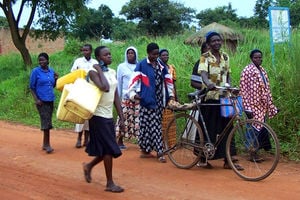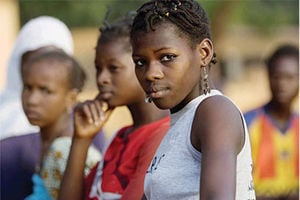
Emilly C. Maractho (PhD)
This year, the global community will be approaching the 30th anniversary of the implementation of the 1995 Beijing Declaration and Platform for Action. Arguably one of the most critical frameworks for the support of women’s empowerment and gender equality in the last three decades.
And this November, the global community will once again be launching the UNiTE by 2030 to end violence against women initiative. While Beijing Platform of Action was particularly useful in highlighting the injustices that women suffered in relation to the media, there were 12 areas of interest that it addressed. Chapter J of the platform concerning media identified six areas in which they thought there was need for progress, if the lives of women in the sector and society was to change.
The framers of the declaration were optimistic that the media could play a crucial role in changing the status of women in society. For instance, the 1995 Beijing Declaration and Platform of Action identified the poor status of women in decision-making within news media organisations as a big challenge to the media playing its empowering role.
This meant that majority of media houses were owned and run by men. It is interesting to see how far the world has moved in tilting this balance, where many more women now sit on the decision-making tables of media houses. There is still work to be done, but some good progress has been made.
The other areas included the continued stereotypical media portrayal of women and the increase in violent and pornographic images of women, lack of gender sensitivity in media policies and programmes, poor access of women to media and ICT, poor participation of women in media and ICT, and increased promotion of consumerism and its attendant drive towards the objectification of women. Some of the key points for noting by the Beijing Declaration and Platform of Action was the idea that the media had the potential to make a far greater contribution to the advancement of women largely by impacting on public policy, private attitudes towards women and behaviour.
It thus called for the elimination of negative and degrading images of women in media communications to provide a balanced picture of women’s diverse lives and contributions to society in an ever-changing world. If we were to count the ways that our world has changed in the last 30 years, we would be lost along the way.
Take the way that media itself has changed. I attended a meeting which had various groups, from journalists to human rights lawyers and so on in the last week, I was struck by how some participants were insisting that the right to freedom of expression was everyone’s right, and declared that this implies, everyone is a journalist by ‘default’. The fact that people use social media has turned each individual with a social media account into a journalist.
The truth is our world and our perception of what these things that were not so long ago meant are rapidly changing. And that means, there are also new concerns about women’s empowerment and gender equality. We can no longer take for granted, that the media will play some roles as we knew it as the definitional problems raged and clouded our judgment of the practice of journalism, its affordances and limitations.
Some questions thus remain. What can the media meaningfully do to end violence against women and girls? How can more women be empowered and become a force for good in our society? What structural injustices remain that require concerted efforts to improve the starting point for most women? Is there a need for a review of the Beijing Declaration and Platform of Action? This year’s 16 days of activism, conceptualised around the 30th anniversary of the 1995 Beijing Declaration and Platform of Action acknowledges that ‘despite the efforts of women’s rights movements to demand justice and accountability, and some notable progress in preventing and responding to violence against women and girls, significant challenges persist in fully addressing the issue’.
Many in this struggle will further say that progress has sometimes been very slow. This is a call for us in media to be deliberate in not just covering the 16 days of activism to end violence against women and girls but to also look back to the last 30 years, and evaluate what the Beijing Declaration and Platform of Action has brought as well as the missing links.
Ms Maractho (PhD) is an academic.
Email: [email protected]





